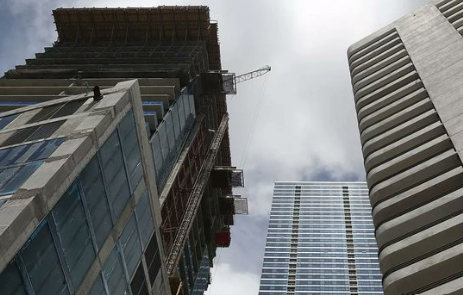In Miami, the condo market is undergoing a significant transformation, driven by new regulations following the tragic collapse of a residential building in Florida three years ago. The cost of condo living has surged, prompting many residents in aging buildings to sell to developers eager to replace them with modern, luxurious high-rises.
In the Edgewater neighborhood, old structures have been replaced by sleek new condominiums. However, one prime waterfront building, Biscayne 21, remains a battleground. Jacqueline Fraga, a unit owner, and a few others have resisted selling to Two Roads Development, who bought most of the units with plans to demolish the building and erect a new, upscale one.
A court decision worries developers eyeing Florida’s aging condos https://t.co/cG3uKWdkQJ
— Florida Issues (@FloridaIssues) July 29, 2024
Fraga and other holdout owners took legal action against the developer, citing the building’s historical and sentimental value. The court ruled in favor of the owners, stating that the developer’s attempt to change the condo association’s governing documents and lower the required approval percentage for termination from 100% to 80% was illegal. This decision has broad implications for developers across Florida, who are now reconsidering their strategies for redeveloping older condos.
The situation is further complicated by new regulations enacted after the Champlain Towers collapse, which have increased costs for residents in older buildings. These rules often require expensive upgrades, making condo living less affordable. While some lawmakers, like Republican representative Vicki Lopez, support easing restrictions to facilitate redevelopment, others argue for preserving the rights and interests of long-term residents.
Owners of aging condos in Miami rush to sell property before new safety regulations/building codes become law in 2025 that’d expose structural defects. 98 residents in Miami died in condo collapse built by 80’s cocaine smuggling. This city is so corrupt🤦🏾♀️ https://t.co/eaVXnn605N
— Hands off 🇬🇾 and 🇭🇹 (@Liberation_Blk) July 20, 2024
The Biscayne 21 case highlights the challenges and tensions in Miami’s condo market, where many buildings are aging, and the demand for luxury housing continues to rise. The outcome of this legal battle and potential changes in state law could shape the future of the city’s skyline and housing market.
Key Points:
i. Rising condo living costs in Florida prompt residents to sell to developers.
ii. Biscayne 21, an older Miami building, becomes a legal battleground over redevelopment.
iii. Court ruling favors holdout unit owners, challenging developers’ strategies.
iv. New regulations post-Champlain Towers collapse raise condo maintenance costs.
v. Future of Miami’s condo market uncertain amidst legal and legislative debates.
RM Tomi – Reprinted with permission of Whatfinger News



